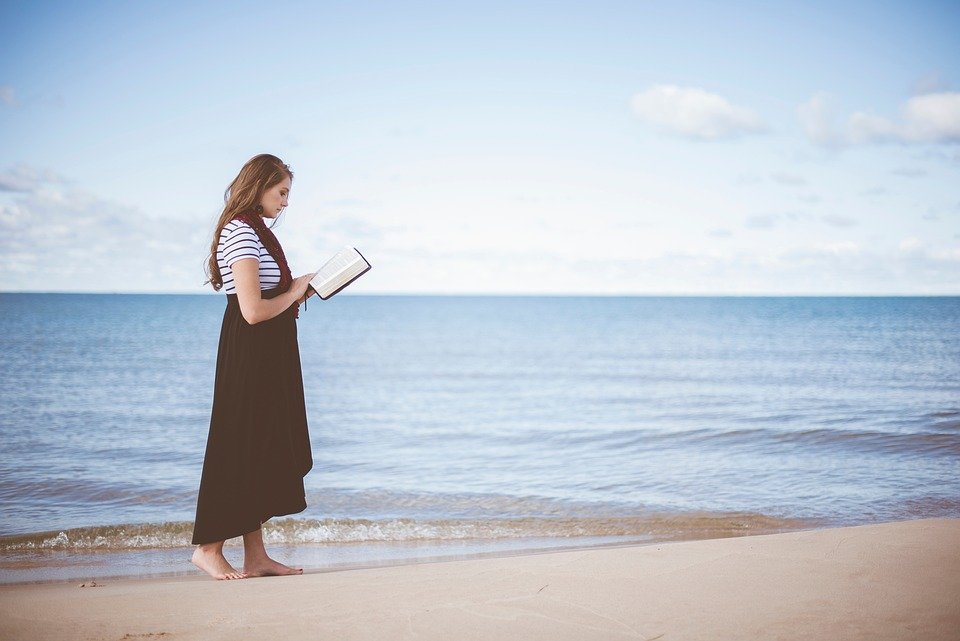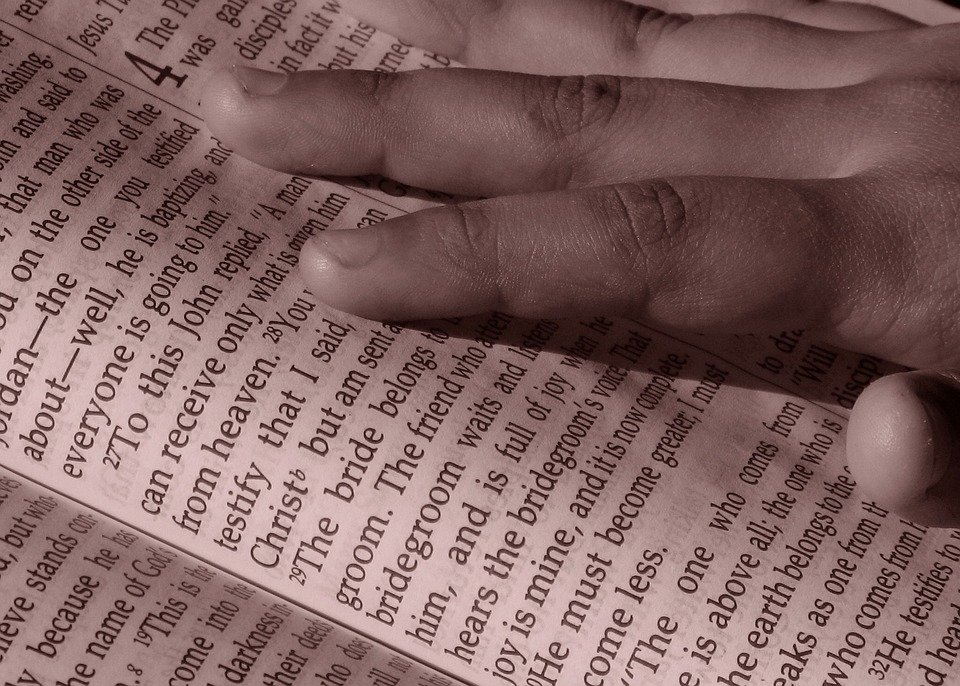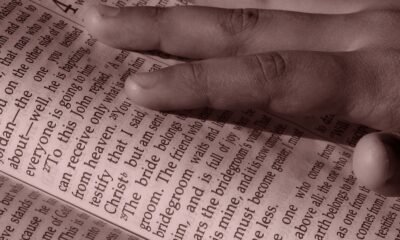FAQs
Looking to Make Your Own Anointing Oil? Here’s a Step-by-Step Guide

[ad_1]
Are you interested in creating your own anointing oil for spiritual purposes? In this article, we will provide you with a step-by-step guide on how to make your own anointing oil. We will cover the ingredients you will need, the process of making the oil, and how to use it in your spiritual practices.
What are the essential oils you will need?
To create your own anointing oil, you will need essential oils that have spiritual significance. Some popular essential oils used for anointing oil include frankincense, myrrh, and cinnamon. These oils are known for their healing and spiritual properties and have been used in religious ceremonies for centuries. You can also add other essential oils based on your personal preferences and beliefs.
It’s important to choose high-quality essential oils for your anointing oil to ensure that it is potent and effective in your spiritual practices.
How do you make your anointing oil?
Making your own anointing oil is a simple process that requires just a few steps. Start by selecting a carrier oil such as olive oil or jojoba oil. Next, mix your chosen essential oils into the carrier oil, making sure to use the proper ratio of essential oils to carrier oil. You can experiment with different combinations of essential oils to create a unique blend that resonates with you spiritually.
Once you have mixed your essential oils into the carrier oil, pour the mixture into a glass bottle and store it in a cool, dark place to allow the oils to blend together. Your anointing oil will be ready for use after a few days of steeping.
How can you use your anointing oil?
Anointing oil can be used in a variety of spiritual practices, such as blessing objects, anointing the sick, or consecrating sacred spaces. To use your anointing oil, simply dip your finger into the oil and apply it to the object or person you wish to bless. You can also add a few drops of the oil to your bathwater or use it to anoint candles and incense during rituals.
Anointing oil is a powerful tool that can enhance your spiritual practices and deepen your connection to the divine. Experiment with different ways of using your anointing oil to discover what works best for you.
Conclusion
Making your own anointing oil can be a fulfilling and spiritually enriching experience. By using high-quality essential oils and following a simple process, you can create a powerful tool for your spiritual practices. Experiment with different essential oil combinations and explore the various ways you can use your anointing oil to deepen your connection to the divine.
FAQs
Can I use any carrier oil for my anointing oil?
While olive oil and jojoba oil are popular choices for carrier oils, you can use any carrier oil that suits your preferences. Make sure to choose a high-quality carrier oil that will not overpower the scent of the essential oils you are using.
How long does it take for the essential oils to blend together?
It typically takes a few days for the essential oils to blend together and for the anointing oil to reach its full potency. Be patient and allow the oils to steep in a cool, dark place before using the oil in your spiritual practices.
Can I customize my anointing oil with additional ingredients?
Yes, you can customize your anointing oil with additional ingredients such as herbs, flowers, or crystals to enhance its spiritual properties. Experiment with different combinations to create a unique blend that resonates with you on a spiritual level.
How often should I use my anointing oil?
You can use your anointing oil as often as you feel called to do so in your spiritual practices. Trust your intuition and use the oil when you feel the need to deepen your connection to the divine or to enhance your spiritual rituals.
[ad_2]
FAQs
How can we start our Friday with a blessing-filled good morning?

[ad_1]
How can we start our Friday with a blessing-filled good morning? This article explores simple yet effective ways to kickstart your day with positivity and gratitude. From morning rituals to uplifting prayers, discover how you can set the tone for a blessed and fulfilling day ahead.
What are some morning rituals to start the day on a positive note?
One of the best ways to start your Friday with a blessing-filled good morning is by incorporating morning rituals into your routine. Whether it’s practicing mindfulness meditation, reading an inspirational quote, or simply taking a few moments to express gratitude, these rituals can help set a positive tone for the rest of the day. By starting your day with intention and mindfulness, you can cultivate a sense of peace and harmony that will carry you through any challenges that may arise.
How can prayer enhance your morning routine?
Prayer is a powerful tool that can help you start your day on a positive and uplifting note. Whether you pray for guidance, strength, or gratitude, taking the time to connect with a higher power can bring a sense of peace and clarity to your morning routine. By offering thanks for the blessings in your life and seeking guidance for the challenges ahead, you can set a positive intention for the day and invite positive energy into your life.
Why is it important to practice gratitude in the morning?
Practicing gratitude in the morning is essential for starting your day with a blessing-filled good morning. By taking the time to acknowledge and appreciate the blessings in your life, you can cultivate a sense of abundance and positivity that will carry you through the day. Whether you keep a gratitude journal, say a prayer of thanks, or simply take a moment to reflect on the things you are grateful for, incorporating gratitude into your morning routine can help shift your perspective and set a positive tone for the day ahead.
How can setting intentions for the day ahead bring blessings into your life?
Setting intentions for the day ahead is a powerful way to invite blessings into your life. By identifying your goals, desires, and aspirations for the day, you can create a sense of focus and purpose that will guide your actions and decisions. Whether you set intentions for a successful workday, harmonious relationships, or personal growth, clarifying your intentions can help you align with the positive energy you want to attract into your life. By setting clear and positive intentions, you can create a pathway for blessings to flow into your life and manifest your deepest desires.
How can connecting with nature enhance your morning routine?
Connecting with nature is a simple yet powerful way to start your Friday with a blessing-filled good morning. Whether you take a walk in the park, spend time in your garden, or simply admire the beauty of the natural world from your window, immersing yourself in nature can help you feel grounded, centered, and connected to something greater than yourself. By tuning into the rhythm of nature and appreciating the beauty that surrounds you, you can bring a sense of peace, joy, and gratitude into your morning routine.
Conclusion
Starting your Friday with a blessing-filled good morning is all about setting the right tone for the day ahead. By incorporating morning rituals, prayers, gratitude practices, setting intentions, and connecting with nature, you can create a sense of peace, positivity, and abundance that will guide you through the day. Remember to approach each morning with an open heart and a grateful spirit, and you will invite blessings and opportunities into your life.
FAQs
Q: How can I start my day with a blessing-filled good morning?
A: You can start your day with a blessing-filled good morning by incorporating morning rituals, practicing gratitude, setting intentions, and connecting with nature.
Q: Why is prayer important in the morning?
A: Prayer is important in the morning because it can help you connect with a higher power, express gratitude, and set positive intentions for the day ahead.
Q: What are some simple morning rituals I can incorporate into my routine?
A: Some simple morning rituals you can incorporate into your routine include meditation, reading an inspirational quote, and expressing gratitude.
Q: How can setting intentions for the day ahead help attract blessings into my life?
A: Setting intentions for the day ahead can help you clarify your goals, desires, and aspirations, and create a pathway for positive energy to flow into your life.
[ad_2]
FAQs
Why Do Some Baptists Believe Dancing is Forbidden? Exploring the Religious and Cultural Reasons Behind the Ban

[ad_1]
Why Do Some Baptists Believe Dancing is Forbidden? Exploring the Religious and Cultural Reasons Behind the Ban
This article delves into the reasons why some Baptists believe dancing is forbidden, examining the religious and cultural factors that contribute to this belief. We will explore the roots of this prohibition and the varying perspectives within the Baptist community. By discussing these reasons, we aim to provide a comprehensive understanding of this controversial topic.
What are the Religious Beliefs Behind the Ban on Dancing?
**Baptists** are guided by a strong commitment to their faith, drawing upon **Christian** teachings to inform their beliefs and practices. Within the Baptist tradition, dancing is often associated with worldly temptations and immorality. Some Baptists interpret biblical passages, such as those condemning lustful behavior or frivolity, as evidence that dancing is incompatible with their spiritual values.
This perspective is rooted in a desire to uphold a **holistic** approach to faith, where every aspect of life is aligned with **God’s** will. By avoiding activities that are seen as promoting sensuality or secularism, Baptists strive to maintain a sense of purity and devotion to their religious convictions.
How Do Cultural Factors Influence the Ban on Dancing?
Alongside religious considerations, cultural norms and traditions also play a significant role in shaping Baptist views on dancing. **American** Baptist communities, for example, have a long history of associating dancing with **worldly** influences and moral decay.
This cultural perception has been reinforced over time through societal attitudes towards dance, particularly in **conservative** regions where traditional values are strongly upheld. As a result, many Baptists view dancing as a practice that conflicts with their cultural identity and moral principles.
Are There Differing Opinions Within the Baptist Community?
Despite the widespread belief in the prohibition of dancing among Baptists, there are **divergent** views within the community on this issue. Some Baptist groups embrace a more **liberal** interpretation of scripture, allowing for dance as a form of **expression** or worship.
These **progressive** voices challenge the traditional stance on dancing and advocate for a more inclusive approach to spirituality. By encouraging dialogue and **open** mindedness, these individuals seek to create a more welcoming and diverse **faith** community.
Conclusion
In conclusion, the belief among some Baptists that dancing is forbidden is a complex interplay of religious and cultural influences. While rooted in a desire to uphold **spiritual** purity and moral values, this prohibition is also shaped by historical attitudes towards dance and societal norms.
It is important to recognize the **diversity** of opinions within the Baptist community and engage in **meaningful** conversations about the role of dance in **faith** expression. By understanding the reasons behind this ban, we can work towards greater **understanding** and **acceptance** among Baptists and beyond.
FAQs
1. Is dancing explicitly prohibited in the Bible?
While the Bible does not specifically prohibit dancing, some Baptists interpret certain passages as condemning lustful or frivolous behavior, leading to the belief that dancing is incompatible with their **spiritual** values.
2. Are there Baptist denominations that permit dancing?
Yes, there are Baptist groups that adopt a **more** **liberal** interpretation of scripture and allow for dance as a form of expression or worship, showcasing the **diversity** of opinions within the Baptist community.
3. How can Baptist communities navigate differing opinions on dancing?
By fostering **open** dialogue and **empathy** towards differing viewpoints, Baptist communities can create a more inclusive and **welcoming** environment that respects **individual** **interpretations** of **faith**.
4. What role do cultural traditions play in the belief that dancing is forbidden among Baptists?
Cultural traditions, particularly in **American** Baptist communities, have reinforced the belief that dancing is associated with worldly influences and moral decay, influencing Baptists’ perceptions of this **activity**.
[ad_2]
FAQs
Is Switchfoot Really a Christian Band? Exploring Their Faith and Music

[ad_1]
In this article, we will explore whether Switchfoot is truly a Christian band by delving into their faith and music. We will analyze their lyrics, interviews, and public statements to determine the extent of their religious beliefs and how it influences their music.
Do Switchfoot Identify as a Christian Band?
Switchfoot is a band hailing from San Diego, California, known for their alternative rock sound and thought-provoking lyrics. Many fans have questioned whether they are a Christian band due to their spiritual themes in their music. The band members themselves have stated that they view their music as a form of expression of their faith, rather than labeling themselves as a Christian band outright.
Lead singer Jon Foreman has often talked about his Christian upbringing and how it influences his songwriting. While their music does contain spiritual references and themes, Switchfoot’s message is generally positive and inclusive, appealing to a wide audience regardless of their religious beliefs.
What Are Some of the Christian Themes in Switchfoot’s Music?
Switchfoot’s music often explores themes of faith, doubt, purpose, and redemption. Songs like “Dare You to Move,” “Meant to Live,” and “Stars” contain spiritual undertones and inspirational messages that resonate with listeners. The band’s lyrics reflect their introspective approach to life and the struggles and joys that come with it.
While Switchfoot’s music may not always be overtly religious, the band’s beliefs shine through in their sincerity and vulnerability. Their songs encourage listeners to think deeply about their lives and the world around them, fostering a sense of introspection and self-discovery.
Are There Critics Who Dispute Switchfoot’s Christian Label?
Some critics argue that Switchfoot’s music is too mainstream and marketable to be considered truly Christian. They point to the band’s success in the music industry and their crossover appeal as evidence that they prioritize commercial success over conveying a strictly Christian message. However, Switchfoot’s fan base remains loyal and appreciative of the band’s authenticity and sincerity in their music.
Ultimately, whether Switchfoot is classified as a Christian band is subjective and open to interpretation. The band’s music undoubtedly carries spiritual themes and messages, but their approach is more nuanced and universal, making it accessible to a broader audience.
How Does Switchfoot’s Faith Influence Their Musical Journey?
Switchfoot’s faith is a fundamental aspect of their musical journey, shaping their lyrics, performances, and interactions with their fans. The band members have been candid about their beliefs and how they inform their creative process. Jon Foreman, in particular, has spoken about his struggles with doubt and the process of reconciling his faith with the realities of life.
Switchfoot’s music serves as a platform for them to share their experiences, doubts, and hopes with their audience. Their authenticity and vulnerability have endeared them to fans around the world, who appreciate the band’s willingness to address deep spiritual and existential questions in their music.
Conclusion
In conclusion, Switchfoot can be considered a Christian band in the sense that their music reflects their faith and values. While they may not fit the traditional mold of a Christian band, their spiritual themes and messages resonate deeply with listeners of all backgrounds. Switchfoot’s music serves as a source of inspiration and comfort for many, regardless of their religious beliefs.
FAQs
1. Do all the members of Switchfoot identify as Christian?
While Jon Foreman, the lead singer, is known for his Christian beliefs, the other members of the band may not necessarily identify as Christian. However, they all share a common respect for spirituality and the band’s message of hope and reflection.
2. How does Switchfoot’s music appeal to a diverse audience?
Switchfoot’s music tackles universal themes that resonate with listeners from all walks of life. Their inclusive message of love, hope, and introspection transcends religious boundaries and connects with people on a personal and emotional level.
3. Have there been any controversies surrounding Switchfoot’s religious affiliations?
While some critics have questioned Switchfoot’s status as a Christian band, the band members have remained true to their beliefs and continue to produce music that reflects their spirituality. Controversies surrounding their religious affiliations have not significantly impacted their loyal fan base.
4. How does Switchfoot balance their faith with their mainstream success?
Switchfoot’s approach to music is deeply rooted in their faith, but they also recognize the importance of reaching a wider audience. The band’s ability to maintain their authenticity while achieving mainstream success is a testament to their sincerity and dedication to their craft.
[ad_2]
-

 FAQs9 months ago
FAQs9 months agoIs Keanu Reeves a Christian? Exploring the Actor’s Religious Beliefs
-

 Symbolism9 months ago
Symbolism9 months agoWhat is the Symbolism Behind the White Butterfly?
-

 Symbolism9 months ago
Symbolism9 months agoWhat Symbolic Meaning Does a Mouse Hold in Various Cultures and Beliefs?
-

 Spirituality9 months ago
Spirituality9 months agoWhat Spiritual Meaning Lies Behind the Sight of a Raccoon?
-

 Spirituality9 months ago
Spirituality9 months agoWhat Does it Mean to Dream About a Black Cat? Exploring the Spiritual Significance
-

 Symbolism9 months ago
Symbolism9 months agoWhat Does the Waterfall Symbolize in Different Cultures and Mythologies?
-

 FAQs9 months ago
FAQs9 months agoIs Taylor Swift’s Faith Central to Her Music and Image?
-

 FAQs9 months ago
FAQs9 months agoWhat is the Spiritual Significance of the Black Bumble Bee?




















